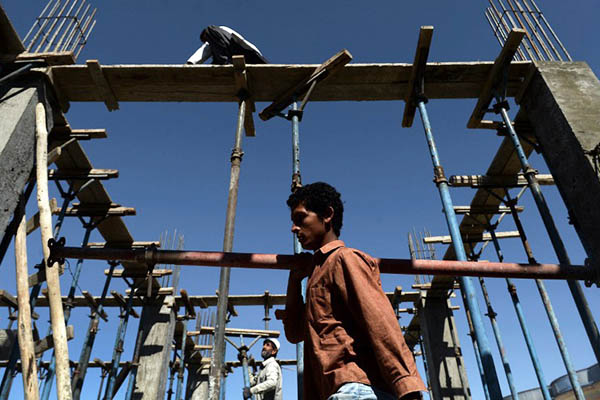
Wakil Kohsar—AFP
Inspector general for reconstruction says corruption undermines every single American endeavor.
Chronic corruption, poor planning and wasteful spending are bedeviling American reconstruction efforts in Afghanistan, a top U.S. inspector warned Wednesday.
The United States has spent in total about $1 trillion during the 14 years it has been in Afghanistan and some 2,200 U.S. lives have been lost in the longest war in U.S. history.
John Sopko, the special inspector general for Afghanistan reconstruction, said rebuilding efforts had been repeatedly hampered by a litany of “persistent challenges” ranging from the construction of unneeded multimillion-dollar buildings to endemic graft among the Afghans. “Corruption undermines every single endeavor we undertake in Afghanistan,” Sopko said, according to a copy of a speech he gave at Brown University in Providence, Rhode Island.
“If Afghanistan is ever to prosper on its own, and if any of the gains we have fostered are to last, corruption must be addressed in a meaningful way.”
Known by its acronym SIGAR, Sopko’s office has long been a critic of spending in Afghanistan. This month it announced the U.S. military used $43 million of taxpayer dollars for a natural gas station in northern Afghanistan that should have cost just $500,000.
In another case, Sopko said the U.S. military built a large headquarters facility at Camp Leatherneck in Helmand province to assist with the surge against Taliban militants in 2010—even after the general in charge said it was not needed.
“The request to cancel the building, however, was rejected by a different general because he believed it would not be ‘prudent’ to cancel a project for which Congress had already appropriated funds,” Sopko said. “The failure to follow the advice to cancel the building’s construction resulted in the waste of roughly $36 million and the general who refused to cancel the project has never been held accountable.”
The USAID overseas development agency did not even know how many schools it had built in the last decade, and was unable to measure educational outcomes. “If we have to cut programs going forward because we have a limited number of funds, we must know which programs are the most effective,” Sopko said. “We must also know which ones the Afghans actually want, and can use, because the cruelest joke is giving the Afghans something they can’t use, whether that’s a school without teachers, or a hospital without medicine or doctors and nurses.”
Sopko, who was appointed in 2012, also pointed to a lack of coordination within the U.S. government as well as with the Afghans and other governments.
Since 2012, SIGAR has published 136 reports, identifying more than $1 billion in potential savings, according to spokesman Warren Ryan. The reports offer a powerful illustration of America’s huge challenges in improving governance in Afghanistan.
